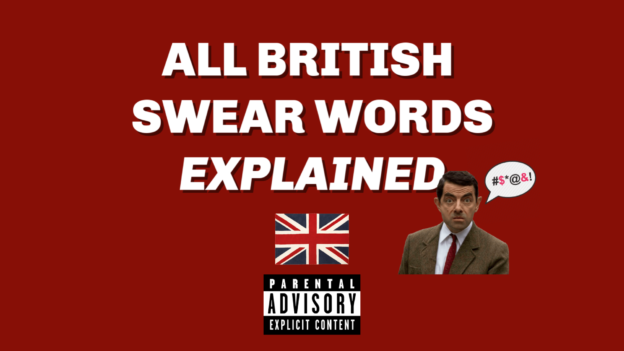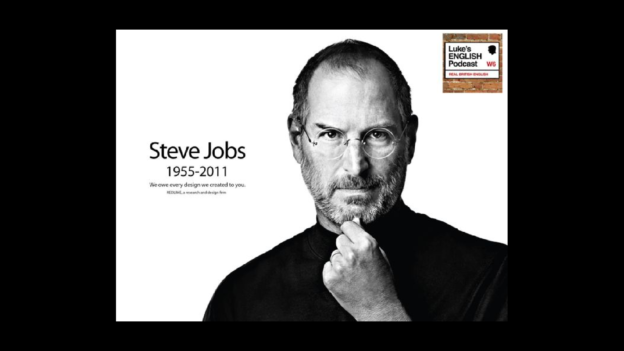 aka “A Cup of Tea with Amber Minogue”
aka “A Cup of Tea with Amber Minogue”
LISTENER: Who’s having a baby? Is it your girlfriend?! WOW!!! CONGRATU…
LUKE: Wait! It’s not my girlfriend. It’s my friend, Amber.
LISTENER: Ah, I see! Well, congratulations to Amber then!
LUKE: Yes, congratulations Amber!
 Right-click here to download this episode of the podcast.
Right-click here to download this episode of the podcast.
Click here to help write a transcript of this episode using a Google Doc.
SO, my friend Amber is having a baby soon, and I thought it would be interesting to interview her for the podcast. I wanted to know; what is it really like to be a pregnant English girl, and what should we say or do when we meet a pregnant woman? Listen to the episode to find out the answers, and to hear plenty of vocabulary on the topic of pregnancy and having a baby. You’ll see notes and a vocabulary list below. Happy listening!
Introduction
In this episode I’m going to talk to my friend Amber, who as well as being an interesting and lovely person, is also pregnant. In fact, she’s really pregnant because the baby is due in just a few weeks.
I’ve decided to interview Amber so that you can listen to her nice accent, but also so we can find out about what it’s really like to be a pregnant English girl, which I’m sure all of you have always wanted to know. I certainly have. The episode is going to go a bit like this:
First, we’ll get to know Amber a little bit. I’ll ask the usual questions like where she’s from and all that.
Then we’ll talk about being pregnant, and what that’s really like. Amber can tell us her experiences.
The episode is going to feature lots of vocabulary on the topic of having babies – not making babies (you’ll have to check the podcasts about slang, or swear words for that kind of fruity language) but the language of having a baby – being pregnant and giving birth. Hopefully we’ll keep it nice and clean and not too messy.
Lots of phrases and vocabulary will come up naturally in our conversation, but I have also made a list of vocabulary and expressions associated with pregnancy and having a baby.
So, finally we’ll go through that list of vocab and just explain it for you.
This could be a long episode, so I suggest you download it, & listen to it in stages, or just listen to it while you’re doing something else like travelling, doing the housework or just sitting on the sofa and staring into space. OK? So, let’s go!
Amber
Congratulations again!
How are you?
Where are you from?
What do you do?
How do we know each other?
Pregnancy
How did it happen? Hahaha etc (actually that’s a question that kids ask sometimes – where do babies come from?)
I can hardly imagine what it’s like, as a man, but if I imagine pretty hard… I still can’t picture how it feels. I have no idea really. It’s probably different for each woman.
What’s it like for you? (physically, but also mentally too)
What about people’s reactions? Do people give you their seat on the train? Anything else?
Have you taken advantage of your pregnancy in any way?
What advantages have you experienced?
Have you had any cravings?
Any morning sickness?
Is it a boy or a girl?
What are you looking forward to?
WHAT SHOULD WE SAY WHEN WE MEET A PREGNANT WOMAN?
Things you shouldn’t say or do…
Anything that makes her feel unattractive
“You look like you’re ready to burst!”
“Have you considered taking some exercise?”
Anything that makes her feel scared
“Get all the sleep you can now…” (because later you will get no sleep at all and it will be a nightmare)
“Enjoy ____ now while you can” (because afterwards you won’t be able to enjoy anything)
Questions about breastfeeding and nappies
Commenting on how much she ate – women are still women when they’re pregnant, and this is always a slightly offensive thing to talk about
“Oh wow, look at how much you ate! I guess you’re eating for 2 now…”
Anything that implies a mistake…
“Was that planned?”
Touching the woman’s belly – is this okay?
Things you should say or do when you meet a pregnant person
You look great
You’ll make a great mother (only if you know the person well)
This is going to be one lucky kid
It’s amazing news
Would you like to sit down? Please take my seat.
Let me get that for you.
Hey sit down, I’ll do that.
From the point of view of a man, meeting a pregnant woman
You’re supposed to say “congratulations” as soon as possible, but getting that wrong – misjudging when someone is pregnant or not – can be the worst social faux pas – so sometimes we’re a little bit ‘slow on the uptake’.
Similarly, giving your seat can be a little tricky. It’s the worst thing when you offer your seat to someone who turns out not to be pregnant. It should be obvious though – it really should. That might explain why guys don’t always jump up to let you sit down.
Some women in London actually wear a badge that says “baby on board” to make it completely clear, although I understand why some women might not want to wear one of them.
Not touching the woman’s belly. Women often get very tactile and touchy-feely when meeting another pregnant woman. Men are less likely to do it- perhaps because we’ve learned that you shouldn’t just dive in and put your hands on a woman without getting her okay first. Anyway, we’re probably not that interested in a baby unless it’s ours (and even then it’s no guarantee for some men – wow, some men are right bastards)
From the point of view of a man who’s girlfriend/wife is pregnant
I imagine it’s a complex feeling of pride & joy, protectiveness towards the woman, and total panic.
There’s some freaking out to be done. This is a very big deal because a whole new responsibility has arrived, and we want to do it properly. So, it’s a change. We feel we are the providers, and so we want to make sure everything is provided for – money, security and so on. Men will often get a bit serious and look for more job security.
Sometimes it takes a while for the news to sink in.
Women immediately face the reality of pregnancy (although some deny it). For men, it takes more time – for example, it doesn’t sink in until they hear the heartbeat or see the sonogram of the baby, or even until birth in some cases!
In the end though, although it is frightening, it is also great because you get to see your child grow through all these important stages in their life (first words, first steps etc) and you get to re-live your childhood a little bit too.
[youtube=http://www.youtube.com/watch?v=OqsBuxC2g1k&w=500&h=281]
Transcript [Unfinished, work in progress]
EPISODE 161 [2:14] – [6.20]
[BEGINS FROM 00:01:43]
and in the end you will be totally clued up about all of the English that you need to know about this subject, which, I think you will agree, is a brilliant thing.
So finally, we will go through this list and that will be that.
This could be quite a long episode so, I would suggest that you download it. Listen to it in stages or listen to it while doing something else, like: travelling, doing housework or just sitting on a sofa and staring into space.
Let’s go!
Luke – Hello, Amber!
Amber – Hello, Luke!
Luke – Congratulations, again.
Amber – Thank you.
Luke – I don’t know if it is appropriate for me to say “Congratulation, again” at this stage.
Amber – You can.
Luke – Really?
Amber – Yep.
Luke – Is there a time limit on, you know, when you can say “congratulations” to a pregnant person?
Amber – I don’t think there is a time, really. I think, there is an appropriate number of congratulations.
Luke – …and do you know what that number is?
Amber – I think, one or two congratulations is fair enough and then, it is obvious you have forgotten. And then it just becomes rude.
Luke – I think, actually, the first time that I realised that you were pregnant, I didn’t say congratulations early enough. Did you realise? Did you notice that? You probably did.
Amber – Em, noooooooo.
Luke – No? Because, em, we will come to this in a minute. This is the subject knowing when to say “Congratulations” to someone who is pregnant. Anyway, so, it’s very nice to be here. I mean in your flat. You have given me a cup of tea, which is lovely. Thank you for that.
Amber – You’re welcome.
Luke – Now, first of all, so, how many months pregnant are you now, in fact?
Amber – I’m eight and half months pregnant.
Luke – Okay, alright. So, it is nearly due I suppose.
Amber – Very soon.
Luke – Okay, we will come to the pregnancy in a minute, but first of all, let’s talk about you. Amber? Yeah. Tell us a little bit about yourself. Where are you from, in fact?
Amber – I’m from London.
Luke – Okay, which part?
Amber – North-West London. Edgware
Luke – Oh, yeah. I know it. Well I know Edgware Road.
Amber – It’s not the same. It’s much further away.
Luke – Alright.
Amber – zone six
Luke – That’s quite far.
Amber – Technically London. It’s hanging on. Clinging, to the edge of London
Luke – Is there a Tube station for Edgware
Amber – Edgware
Luke – Okay.
Amber – It’s at the end of the Northern line.
Luke – I see. Okay.
Amber – at the very end.
Luke – Alright. There’s Edgware Road, and then there’s Edgware, and I expect people get them mixed up.
Amber – They do, but I don’t mind, because Edgware Road is actually, quite a lot nicer than Edgware
Luke – It’s quite posh, isn’t? Edgware Road
Amber – Yeah.
Luke – So, Edgware Road at the top of the Northern line.
Amber – Yeah.
Luke – … and you are living here in Paris now, how long have you been living here?
Amber – I’ve lived here 12 years.
Luke – Okay, alright. So, you speak good French, I imagine?











